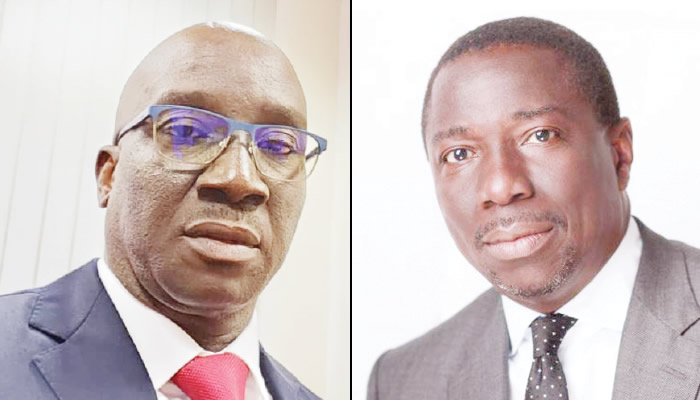Edo Governorship Election Tribunal Upholds Okpebholo’s Victory: A Detailed Examination of the Ruling
The Edo State Governorship Election Petition Tribunal delivered its much-anticipated judgment on Wednesday, affirming the victory of All Progressives Congress (APC) candidate, Monday Okpebholo, in the September 21, 2024 governorship election. The three-member panel, led by Justice Wilfred Kpochi, unanimously dismissed the petition filed by the Peoples Democratic Party (PDP) and its candidate, Asuerime Ighodalo, citing a failure to substantiate allegations of over-voting and other electoral irregularities. This decision effectively confirms Okpebholo’s mandate as the duly elected governor of Edo State, as initially declared by the Independent National Electoral Commission (INEC).
The PDP and Ighodalo had contested the election results, alleging widespread irregularities, including improper handling of sensitive election materials, inaccurate vote tallies, and manipulation at collation centers. Their petition centered on claims that Okpebholo did not secure the highest number of lawful votes and that the election was marred by over-voting in favor of the APC candidate. They presented evidence, including BVAS machines from select polling units, and called upon nineteen witnesses in an attempt to bolster their case. The core of their argument rested on the alleged discrepancies between the recorded votes and the number of accredited voters, suggesting a systematic inflation of votes in favor of the APC.
However, the tribunal meticulously examined the evidence presented and found it insufficient to prove the petitioners’ claims. The judges emphasized the burden of proof placed upon the petitioners to demonstrate that the declared winner was not duly elected. They highlighted the principle that petitioners must provide compelling evidence to support their allegations, rather than simply relying on perceived weaknesses in the respondent’s defense. The tribunal noted that the PDP and Ighodalo failed to meet this burden, presenting a case largely based on hearsay and lacking the necessary concrete evidence to support their claims of over-voting.
A key point of contention revolved around the petitioners’ presentation of evidence. While the tribunal acknowledged the submission of documents listing polling units and wards where irregularities allegedly occurred, it criticized the lack of proper explanation and corroboration through credible witnesses. The panel stressed the importance of linking documentary evidence to witness testimonies, highlighting the inadequacy of mere documentation without substantial supporting testimony. The reliance on hearsay evidence, particularly from witnesses who lacked direct knowledge of the events in question, significantly weakened the petitioners’ case. The absence of crucial witnesses, such as polling unit agents, presiding officers, and voters, further undermined their argument.
The tribunal also dismissed the claim of procedural breaches by INEC in handling election materials. It pointed out that the petitioners failed to demonstrate how these alleged breaches directly impacted the election results. Specifically, none of the presented BVAS machines were activated to demonstrate any discrepancies between recorded votes and accredited voters. The tribunal emphasized the need for the Voter Register, functional BVAS machines, and Form EC8A to establish over-voting, elements which the petitioners failed to provide adequately. The submission of mere screenshots of BVAS data, rather than the actual devices, was deemed insufficient to prove their claims.
Further weakening the petitioners’ case, the tribunal noted the introduction of new facts not included in the original petition. These additions were subsequently struck out, highlighting the importance of adhering to the established legal process and the need for consistency in legal arguments. Despite accepting the submitted documents as evidence, the tribunal found them insufficient to overturn the election results. The judges concluded that even if the disputed votes were removed, Okpebholo would still have maintained a sufficient margin to win the election, solidifying his mandate as the duly elected governor.
In summary, the tribunal’s decision hinged on the petitioners’ failure to provide sufficient evidence to substantiate their allegations of electoral malpractice. The judgment underscores the importance of robust and credible evidence in election petitions, emphasizing the need for petitioners to go beyond mere allegations and present concrete proof to support their claims. While the petitioners have indicated their intention to appeal the ruling at the Court of Appeal, the tribunal’s decision stands as a significant affirmation of Okpebholo’s electoral victory.


